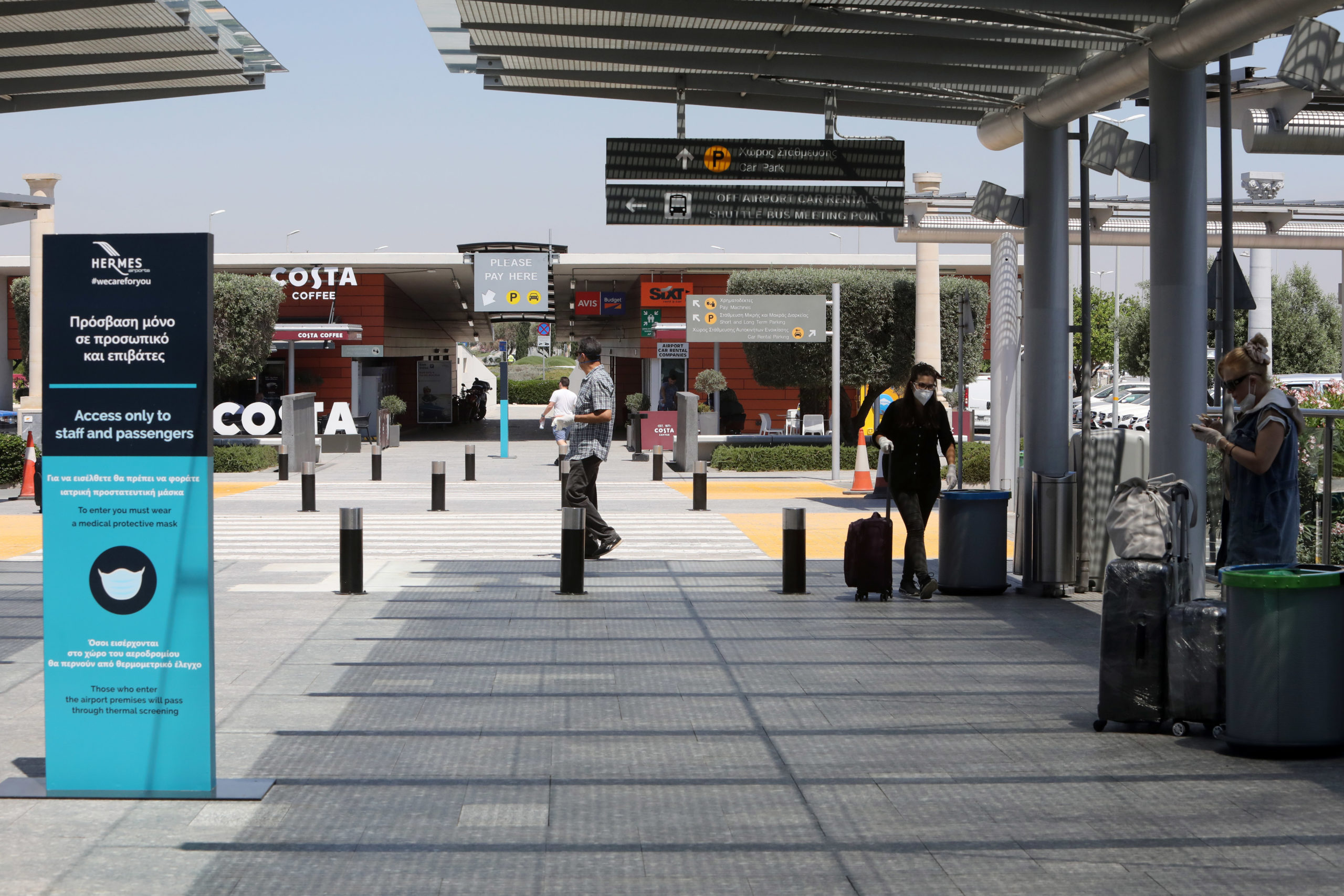Cyprus has downgraded four countries in its latest COVID safe travel list, with Iceland, Poland and the Netherlands dropping from the medium risk orange to the high-risk ‘red.
Lichtenstein was demoted from the safest green category to orange.
No country was upgraded to green, but South Korea was the only one to move out of the red to orange.
With Poland and the Netherland’s downgraded, most EU countries, 17, are now in the high-risk red category.
Only two bloc members, Malta and Italy, are green among only eight countries in that zone.
There are 20 countries in the orange category where a negative test is needed before departure to Cyprus; just seven are EU members.
Oman has been newly classified in the red category, and the country’s vaccination certificates are accepted.
The travel changes come into effect on Thursday, 28 October.
The island bases its weekly epidemiological risk report on the equivalent list issued by the European Centre for Disease Control.
Cyprus has been downgraded in the ECDC ranking, which most EU members use to their safe travel lists.
After spending just a fortnight in orange, the island fell to the ECDC’s red category classification last week.
Health authorities have now contained a surge in cases to the low hundreds from a peak of 1,152 daily infections, mainly thanks to its high vaccination rate, with over 80% of the adult population receiving a COVID-19 jab.
Under the colour-coded system, there is no mandatory quarantine for tourists entering Cyprus from the EU.
Cyprus also keeps its doors open to fully vaccinated tourists to boost arrivals that plunged 84.1% last year, regardless of their country of origin.
Tourists allowed unconditional entry must have a COVID-19 vaccine approved by the European Medicines Agency (EMA) — Pfizer/BioNTech, AstraZeneca, Moderna or Janssen.
Russia’s SputnikV and China’s Sinopharm are also accepted vaccines by Cyprus.
Regardless of category, unvaccinated tourists staying for more than a week must get tested on the seventh day of their holiday.
GREEN
Under the COVID assessment scheme, low-risk countries currently classified in the green category are:
- European Union: 1) Italy, 2) Malta
- Small states: Vatican City
- Third Countries: 1) United Arab Emirates, 2) Jordan, 3) Kuwait, 4) New Zealand, 5) Saudi Arabia
ORANGE
Orange countries are those of higher risk than green.
Passengers must have undergone a PCR laboratory test within 72 hours before departure and have a certificate proving they tested negative for the virus.
- European Union: 1) France, 2) Denmark, 3) Greece, 4) Spain, 5) Portugal, 6) Sweden, 7) Czech Republic
- Small states: Andorra, Monaco,
- Schengen Area: Liechtenstein, Norway
- Third Countries: 1) Australia, 2) Japan, 3) Qatar, 4) China (including Hong Kong and Macau), 5) Bahrain, 6) South Korea, 7) Uruguay, 8) Rwanda, 9) Chile
RED
This category includes countries of higher risk than orange.
Passengers coming from red category countries are required: a) to prove a negative PCR test carried out under 72 hours before departure, and b) undergo another PCR test upon arrival in Cyprus. The cost of the test is charged to the individual.
- Member States of the European Union: 1) Austria, 2) Belgium, 3) Bulgaria, 4) Germany, 5) Estonia, 6) Ireland, 7) Croatia, 8) Latvia, 9) Lithuania, 10) Luxembourg, 11) the Netherlands, 12) Hungary, 13) Poland, 14) Romania, 15) Slovakia, 16) Slovenia, 17) Finland
- Small states: San Marino
- Schengen Area: Switzerland, Iceland
- Third Countries: Egypt, Armenia, Georgia, United States of America, United Kingdom, Israel, Canada, Belarus, Lebanon, Oman, Ukraine, Russia, Serbia, Singapore
GREY
All the rest. Arrivals are allowed entry after acquiring special permission, only if they are Cypriot citizens or entitled to enter, such as people with a work permit.
Passengers must undergo a coronavirus test under 72 hours before their trip and have a certificate they tested negative for Covid-19.
Grey category passengers must remain in self-isolation for 14 days or seven if they choose to carry out another coronavirus PCR test with a negative result on the seventh day.










